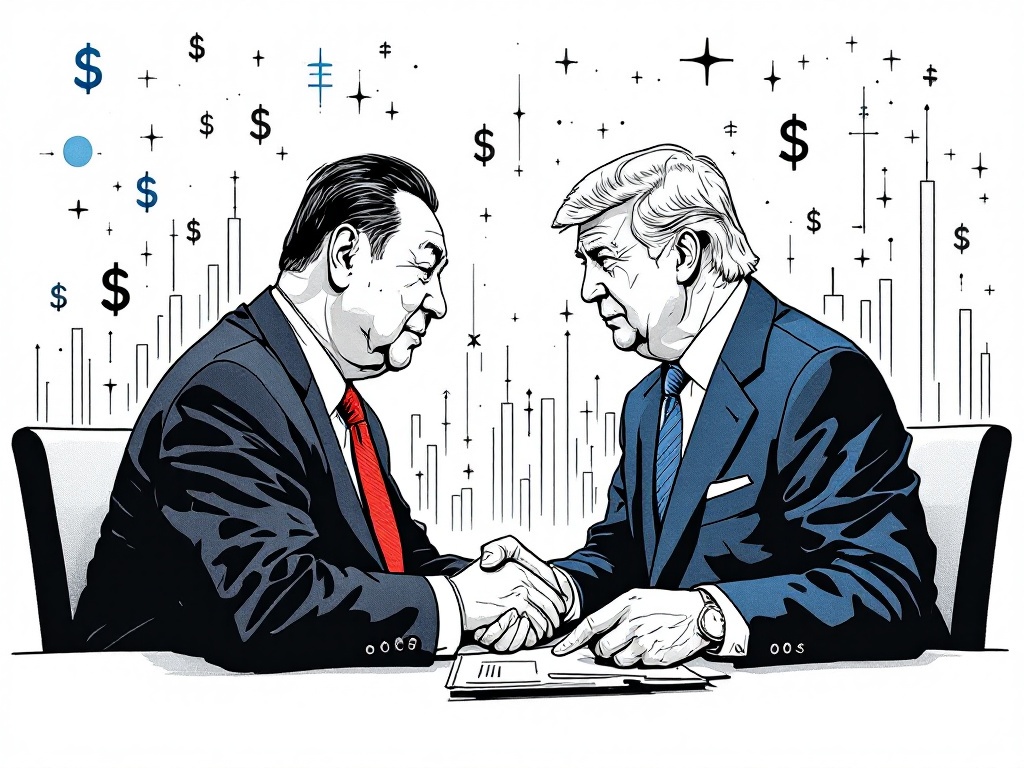China Seeks Stronger U.S. Financial Ties Amid Looming Trump Tariffs

Beijing, Wednesday, 11 December 2024.
Chinese Vice Premier He Lifeng intensifies meetings with U.S. finance leaders to bolster ties before Trump reintroduces tariffs, aiming to navigate rising bilateral tensions effectively.
Strategic Financial Diplomacy
In a calculated diplomatic push, Chinese Vice Premier He Lifeng has conducted an intensive series of high-profile meetings with U.S. financial executives throughout late 2024. Notable encounters included discussions with BlackRock’s Chairman Larry Fink on December 5 and Goldman Sachs’ President John E. Waldron on December 4 [1]. This strategic outreach extended to meetings with Citigroup CEO Jane Fraser on November 21, and earlier sessions with Invesco CEO Andrew Schlossberg and HSBC Group Chairman Mark Tucker [1]. These meetings reflect Beijing’s proactive approach to maintaining financial ties amid growing concerns over President-elect Trump’s planned trade policies [1][3].
Trump’s Aggressive Trade Stance
The urgency of China’s diplomatic efforts is underscored by Trump’s announced plans to implement substantial tariffs upon his return to office. The President-elect has declared intentions to impose 10% tariffs on Chinese goods and has even threatened 100% tariffs on BRICS nations if they attempt to move away from the U.S. dollar [3]. These measures are part of Trump’s enhanced ‘America First’ approach, which he plans to implement after his inauguration on January 20, 2025 [3]. The appointment of at least 10 billionaires to his Cabinet, including Scott Bessent as Treasury Secretary and Howard Lutnick as Commerce Secretary, signals a significant shift in U.S.-China economic relations [1].
Beijing’s Strategic Response
Chinese authorities are actively preparing for multiple scenarios, as evidenced by their December 9, 2024 high-level meeting reaffirming their supportive economic stance [1]. According to Zongyuan Zoe Liu from the Council on Foreign Relations, ‘They are preparing for the worst-case scenario’ [1]. This preparation includes not only diplomatic outreach but also strategic measures such as export controls on critical minerals [1]. The significance of these financial relationships cannot be understated, as noted by NYU School of Law’s Winston Ma, who describes U.S.-China capital markets as ‘arguably the most dynamic and inter-connected aspect’ of bilateral relations over the past two decades [1].
Looking Ahead
The effectiveness of China’s financial diplomacy may be tested by the moderating influence of Wall Street veterans in Trump’s cabinet. As Clark Packard from the Cato Institute suggests, ‘Wall Street folks coming into commerce and treasury will serve a moderating role on the trade protectionist side’ [1]. However, with Trump’s demonstrated willingness to use the International Emergency Economic Powers Act for unilateral tariff implementation [3], and his broader geopolitical agenda focusing on issues ranging from fentanyl to currency competition [3], the path forward remains uncertain. This diplomatic initiative by Beijing represents a crucial attempt to maintain economic stability in an increasingly complex bilateral relationship.